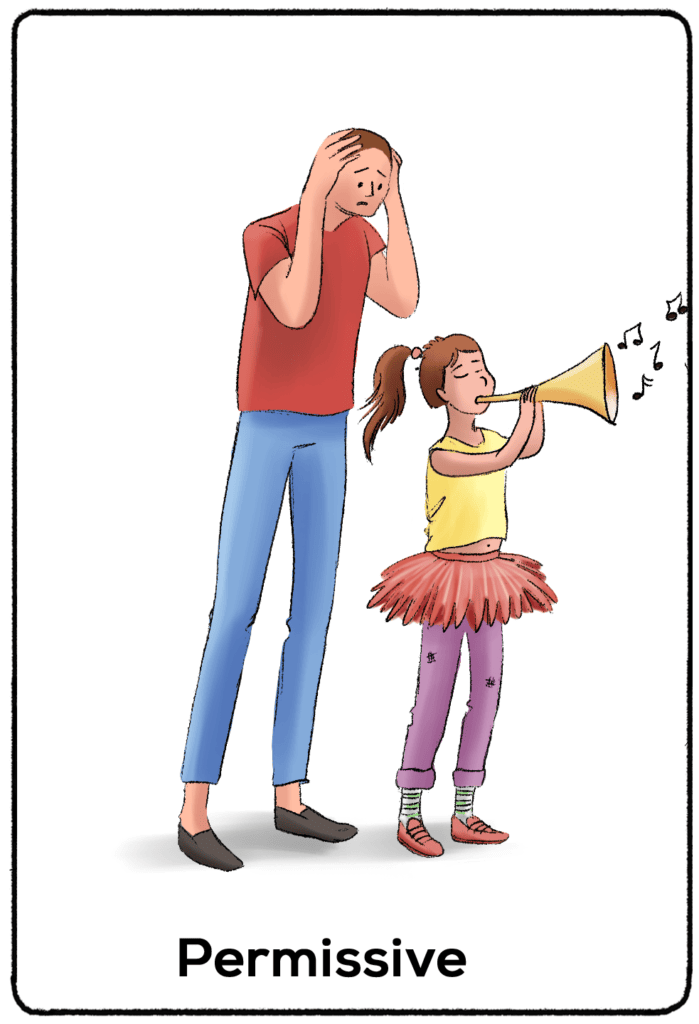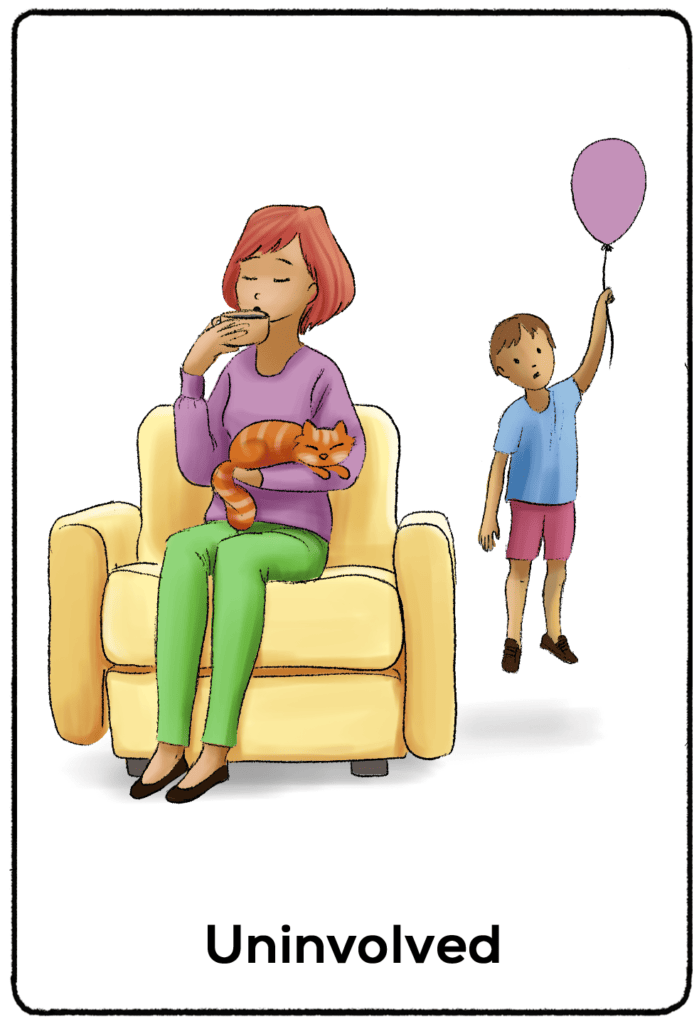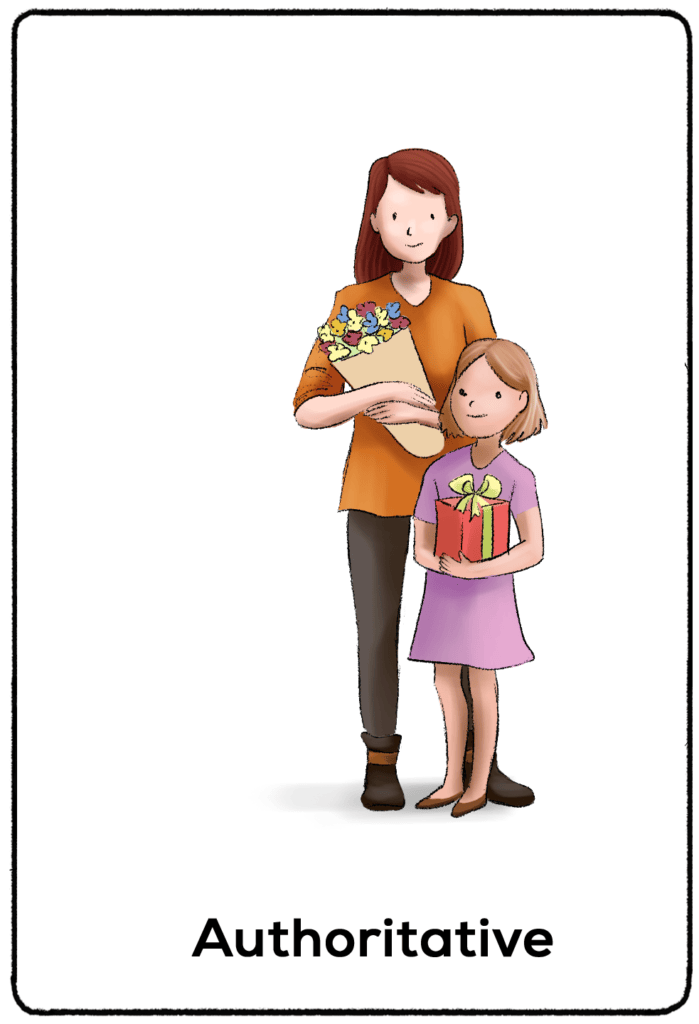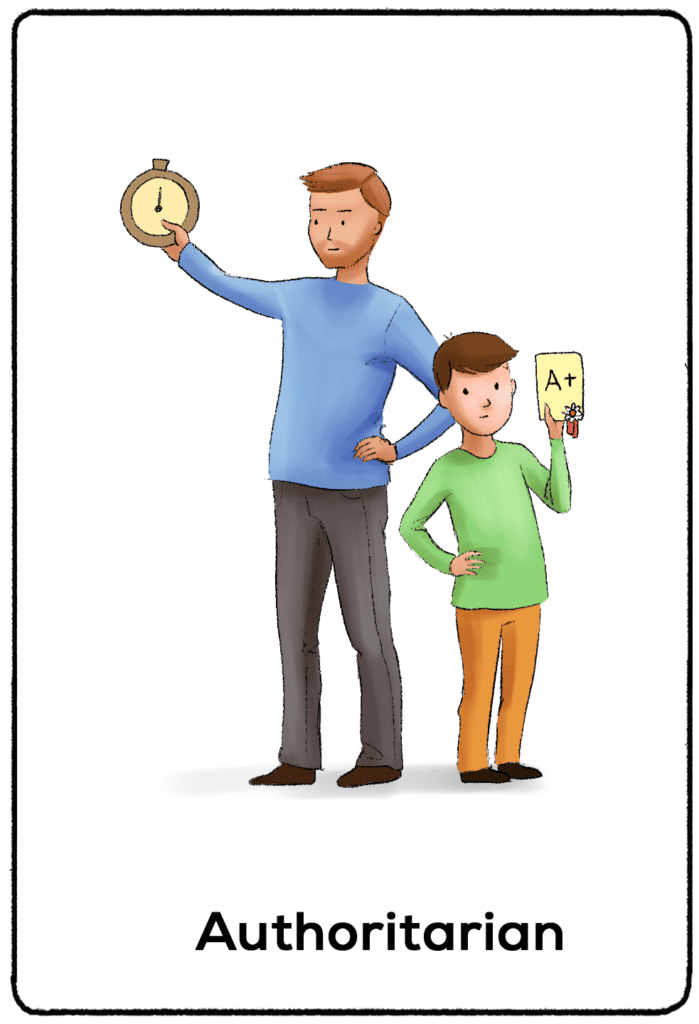There are a lot of different ways that adults decide to parent their children. Some parents want to be their children’s friends, while other parents want their kids to listen to every word they say, no questions asked. As psychologists have studied parents, they have identified different parenting styles.
What Are Parenting Styles?
The way that people parent exists on a spectrum. There is no right or wrong way to parent - all of them can be successful in their own ways. Of course, different parenting styles like permissive or authoritative parenting, have different benefits and drawbacks.
How Many Parenting Styles Are There?
Psychologists have identified four main parenting styles:
- Permissive
- Uninvolved
- Authoritarian
- Authoritative
These parenting styles may lead the child to develop different attachment styles, which will affect their ability to form relationships later in life.
Permissive Parenting
With permissive parenting the relationship dynamic between the parent and the child is the most like a friendship compared to all of the other parenting styles.
These are the types of parents that are very lenient and let their children express themselves the most. The limits in this relationship can be pushed further than any of the other parenting styles.

The other main characteristics of permissive parenting are:
- Accepting
- Low expectations
- Lenient
- Indulgent
- Non-confrontational
Although many kids seem to think of this type of parenting as ideal, there are some negative behaviors associated with the children of this parenting style.
Some of the behavioral issues that the children often experience when parents use this style center mostly around the feeling of entitlement that the children of this parenting style develop. This shows when it comes time for sports in high school, the feeling like they should be picked first for a play or for team sports.
Permissive Parenting Style in Movies
In high school years, this parenting style also affects academics. Think of the movie “Clueless”; In the movie the main character, Cher, shares a scene with her dad where she explains that she doesn’t have her report card yet because she is negotiating her grades. She says that her teachers are trying to “lowball” her and that her dad taught her never to take a first offer. He doesn’t seem concerned about the behavior and even says he is proud.
This movie is a perfect example of permissive parenting. Cher thinks that she can talk her teachers into better grades because for her whole life she has talked her parents into getting her whatever she wants. The word “no” doesn’t seem to exist for her throughout the movie.
This tends to continue on into the adult lives of these children. In their careers if they get passed up for a promotion even though they weren’t as qualified, they still may feel like they “deserved” it, even with no proof.
Uninvolved Parenting
This parenting is the least involved. Often the children of these parenting styles feel a degree of neglect from their parents, some may even feel like their parents don’t love them at all. For these parents, there will always be something that is a competing priority between them and their children.
Some of the other characteristics of this parenting style are:
- Little interest in their children's lives
- Missing important events
- Letting their children “figure it out” by themselves
- Passiveness

Parents who use this style of parenting may be lacking in emotional and physical support. This may be the type of parenting shown by a classic workaholic. This could include missing things that might be meaningful to the child. Things like a recital for school, meeting a new boyfriend/girlfriend, or anything that shows that the child is trying to seek their parents' approval.
This style of parenting leads to relationship issues as well. This may make the children untrusting or distant in their future relationships, or unreliable like their parents were to them.
The constant chase of approval from their parents will lead them to feel resentment and is very strenuous on the relationship between parent and child.
Authoritative Parenting
This is arguably the best parenting style that raises successful and confident children. Self-esteem in these children is the best out of all of the other parenting styles. This style of parenting is a balance between letting the child figure out who they are and express themselves and discipline.
Other characteristics of Authoritative Parenting are:
- There are clear boundaries for the relationship
- They are assertive
- Flexibility
- Understanding
- Have high expectations
- Setting standards
Authoritative vs. Uninvolved Parenting
Unlike uninvolved parenting, these parents are overwhelmingly more supportive and show up for important events. And although they don’t always give their approval, because they want their kids to meet their standards, they always offer their support.
Although some kids feel like their parents are too much of a “hard-ass” at the time, when they get older they quickly realize that their parents had their best intentions in mind.

Authoritarian Parenting
This parenting style is on the cold side of Authoritative parenting. It is like Authoritative, but with little warmth towards their child. This parenting has a “because I said so” attitude. Psychologists say this leads to children who lose curiosity later in life.
Though this is a very cold style of parenting, you will find that most of the parents who have used this style were also subjected to this same style of parenting from their own parents, and that they feel that they did what was best for their child. In their mind, their type of parenting style is effective in raising successful children.
While they may not be wrong in that assumption, most kids almost always grow up feeling like their parents did not love them, or rather did not care for their feelings.
Other characteristics of Authoritarian Parenting are:
- Punishing wrongs
- No reward for doing right
- Emotional distance
- High expectations
- Having absolute power

Example of Authoritarian Parenting
When thinking about Authoritarian parenting, think of a girl at the age of 8 who is a piano prodigy. Everyone thinks that she has a natural and beautiful talent. Behind the scenes of this young child's success is a parent who made her practice three hours a day, every day. The child complained that she didn’t want to do it, but her mother or father told her that successful people don’t give up on anything.
The child is miserable but the parent, in an attempt to raise a child who is successful and has integrity, has imposed something on her child that she didn’t want, and therefore made the small child feel like her parent doesn’t care about her. It also made her hate the piano.
Which Parenting Style is Best?
Let’s be honest, there are a lot of ways to "screw up" kids. Sometimes there are events out of anyone’s control that make parents feel like they have failed to do the best that they can do. To say which parenting style is best statistically is Authoritative. The stats show children grow up in this environment are the most mentally healthy.
It is a good balance between discipline and support. It is not uninvolved but it is also not so overbearing like Authoritarian. Some call this "Democratic Style of Parenting".
On the other hand, there have been well-rounded people who have come out of all the styles of parenting because of their resilience. Who is to say that you can’t be successful no matter how you grew up?
How Divorce Affects Parenting Style
Often children of divorce receive the permissive parenting from one or both of their parents shortly after the parents' divorce. This is usually because one or both parents are trying to be the “cool” parent in the divorce and let a lot of things slide in fear of the child wanting to spend more time with the other parent.
There have also been studies that prove that children of divorce and this parenting style are sexually active at a younger age than other parenting styles.
How to Assess Your Parenting Style
If you are a parent, you are likely reading this page because you want to be an excellent parent. Know that your “style” may differ from other parents, but this desire means that you’re on the right track. No parent is perfect. Authoritarian parents may be on the best track to raising successful children, but even these parents mess up, set expectations too high, or give children a hard time and later regret it.
How do you know what type of parent you are? How do you become the best parent you can be? You have to first be aware of your parenting style and how it might be influenced by the way your parents parented you.
Talk To Your Siblings and Friends
Now that you’re a parent, you may already see your parents in a different light. But you may have still accepted all your parents’ behaviors as “normal.” That’s all you’ve known, after all! Talk to siblings and friends to get an outside perspective on your parents. Were they lenient? Stricter than other parents? Were other parents more involved, but you just didn’t know it?
As you gain the perspective of other people who knew your parents (or people with other parents,) you may see your parents in a new light. This may help you adjust your expectations as you parent your children.)
Take a Parenting Style Quiz
Online assessments can also help you gain perspective on your parenting style. Take this free quiz online to understand your parenting style better. Even just reading the questions out loud will help you reflect on how you approach your children.
Reach Out to a Therapist
A therapist can also help you put your childhood and current parenting struggles into perspective. Some therapists specialize in parenting styles and working with parents. Before you sit down for a session with a therapist, consider doing a consultation call with them and talking about your concerns. They may refer you to a therapist who is better suited to parenting styles or you’ll know you’re with the right therapist!
Adjusting Your Parenting Style
Parenting is not easy. Give yourself grace as you navigate hard conversations, punishments, rewards, and other elements of parenting. If you are looking to be a more authoritative parent, you can take the following actions to start.
Set goals. Be clear with your partner and your children about the goals and expectations you have for them. Where do you see them in five years? Ten years? What actions will they have to take today to be the successful person you know they can be? These open conversations may begin earlier than you anticipated, but they will set your child up for success.
Show up! Talk is cheap if you do not back it up with action. If you say that your child’s academic success is important to you, show it. Help them with their homework. Attend their graduations and sit as far up to the front as you can. Be there for your child. They will notice.
Begin with yourself. Authoritative parenting is all about setting high expectations and supporting your child as they reach their goals. Children learn by example. Can you “parent” yourself in the same way?



